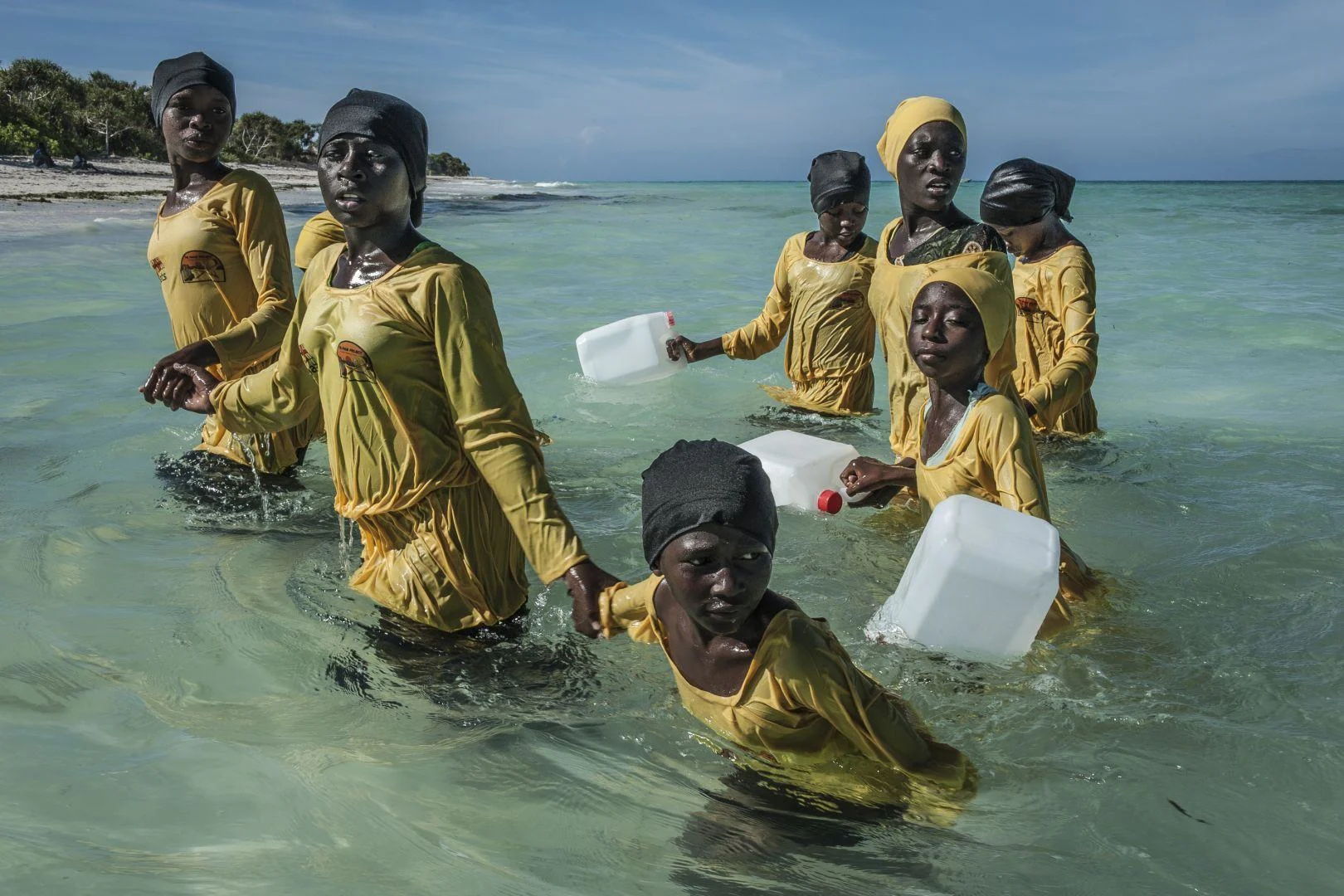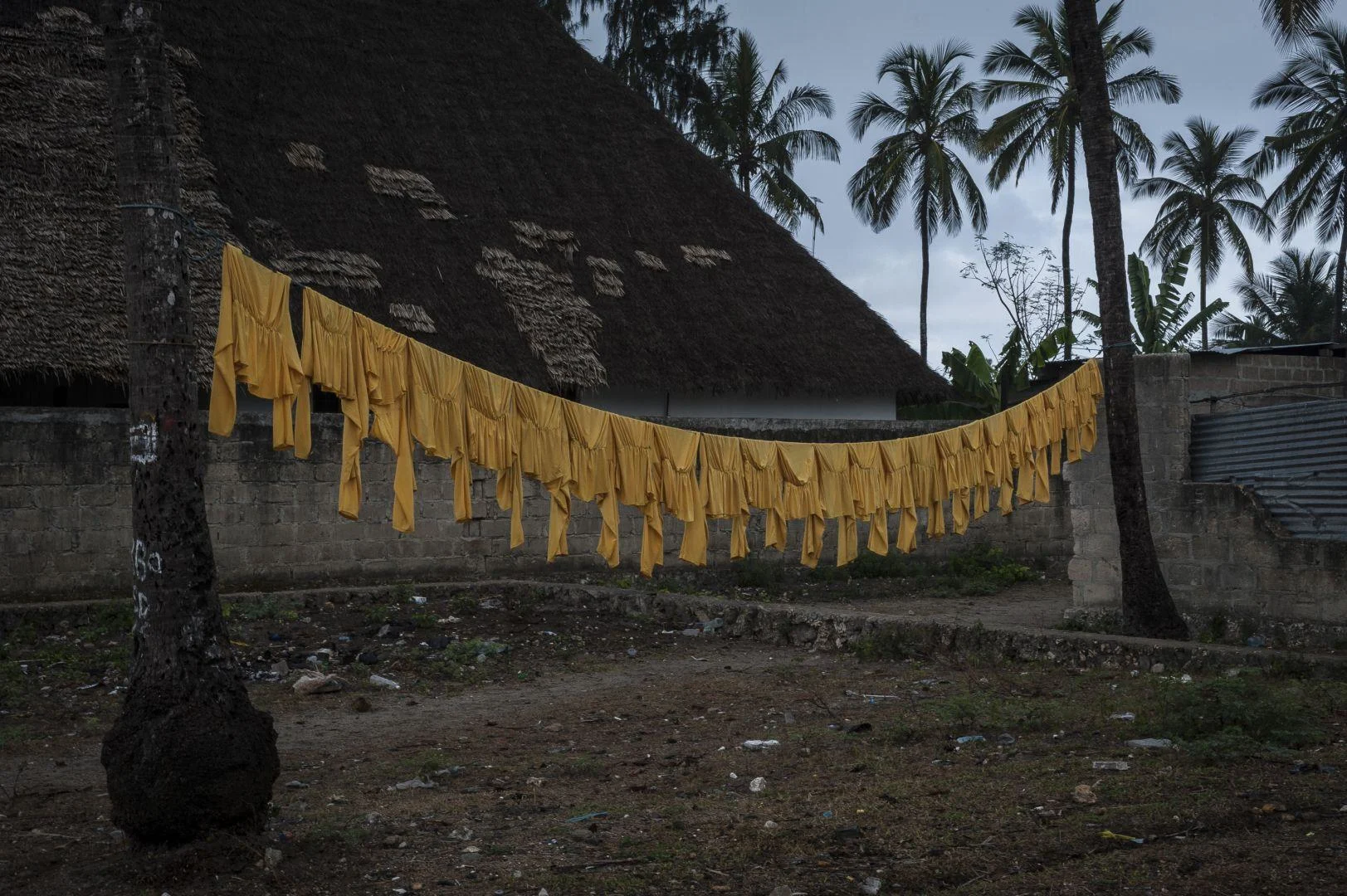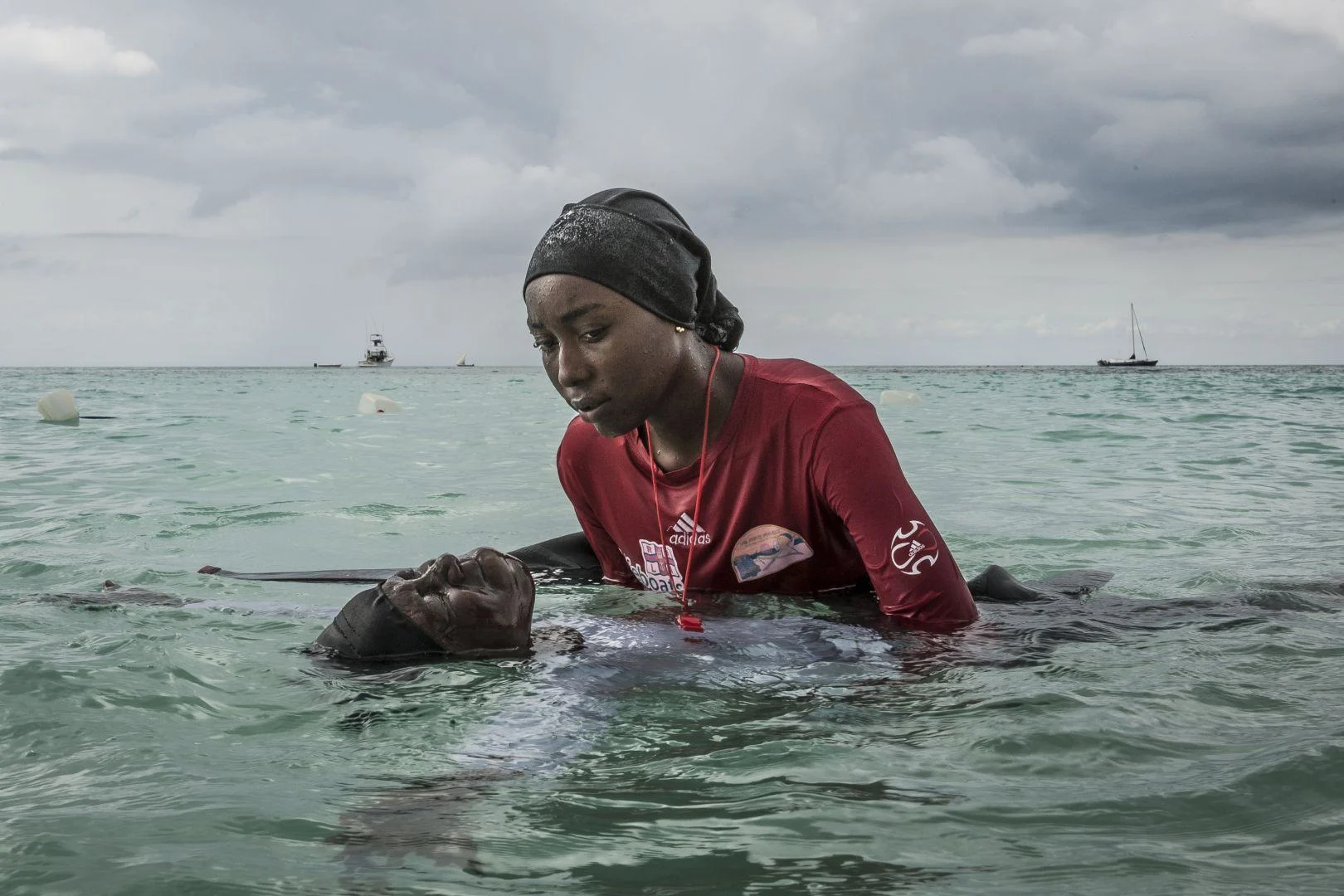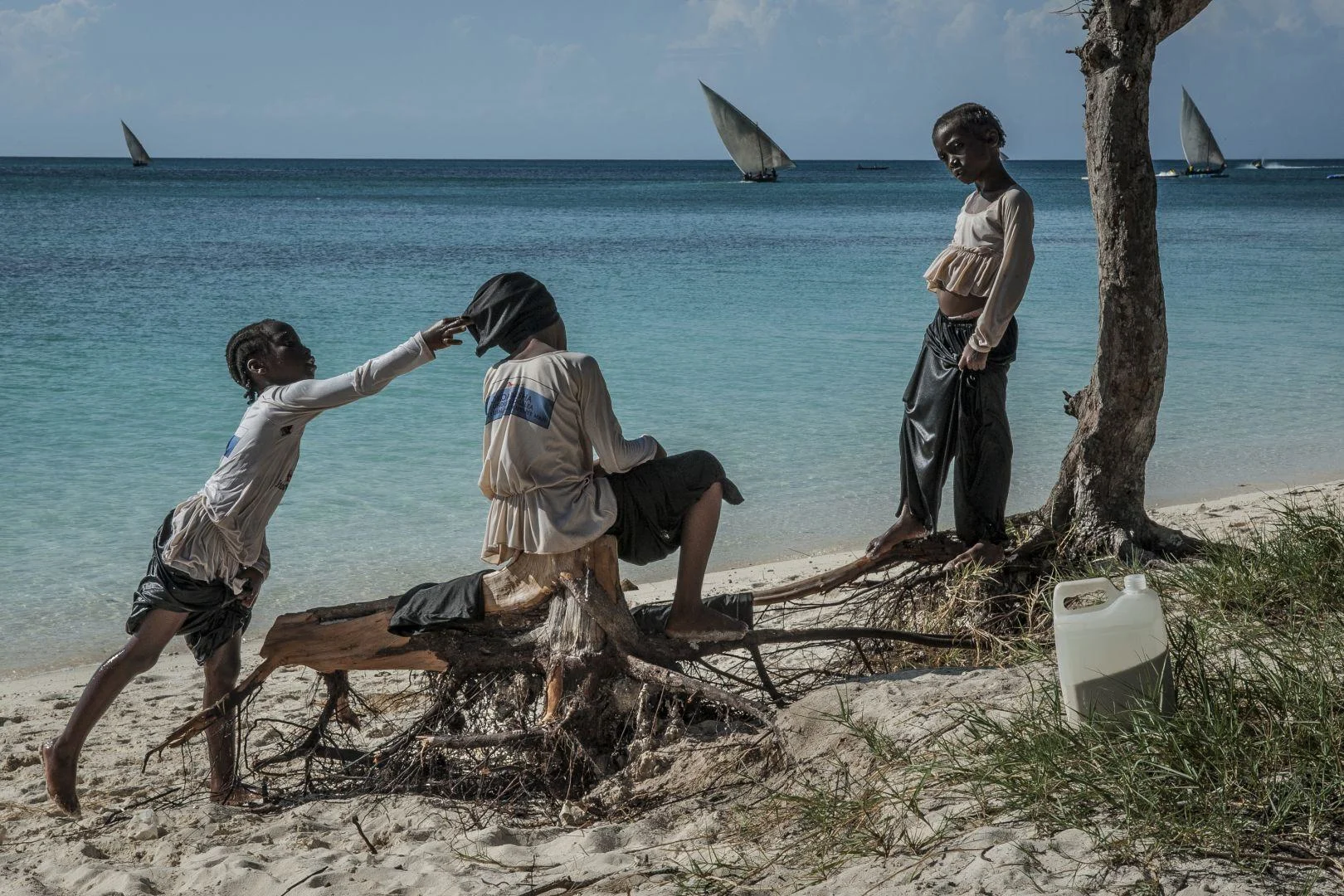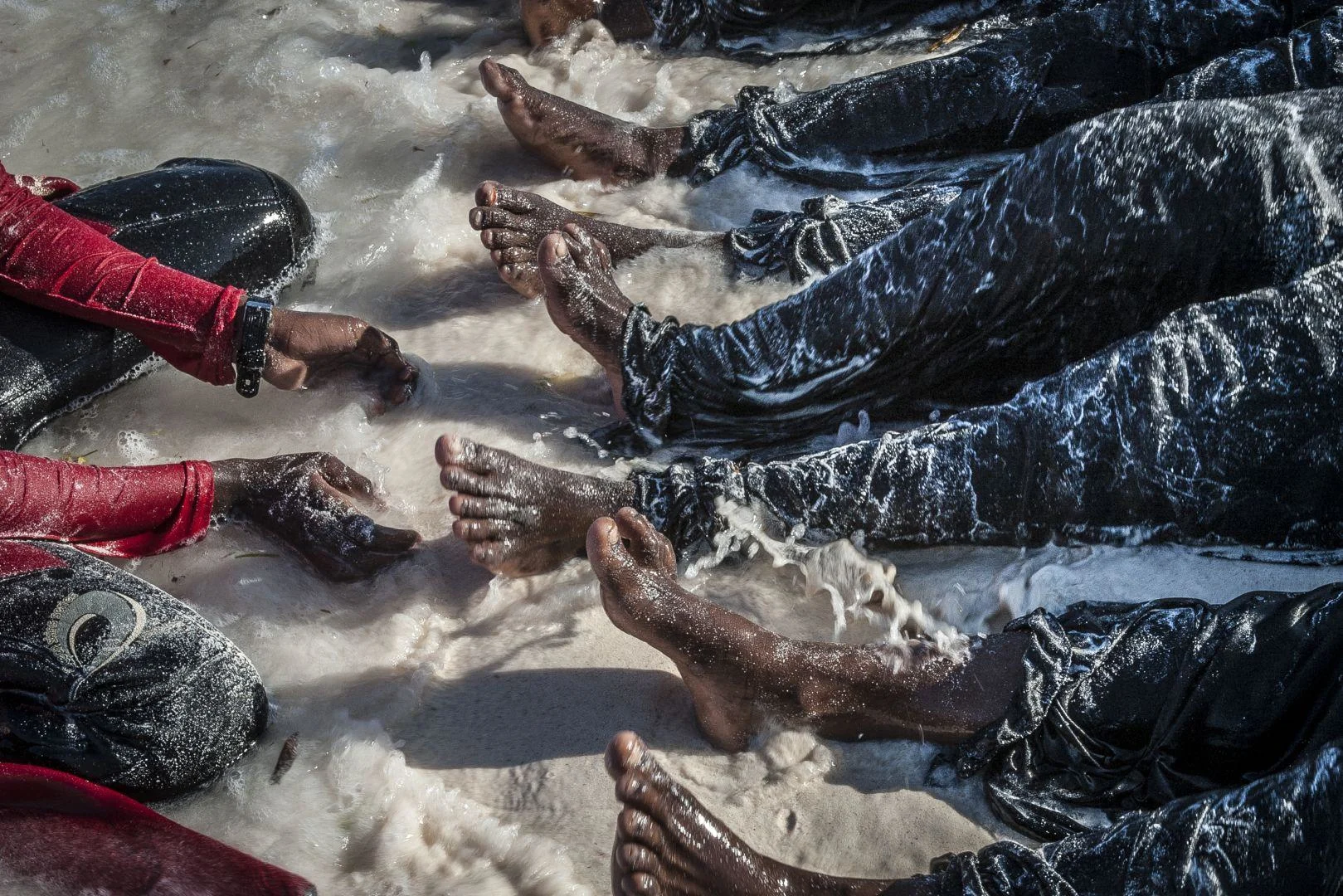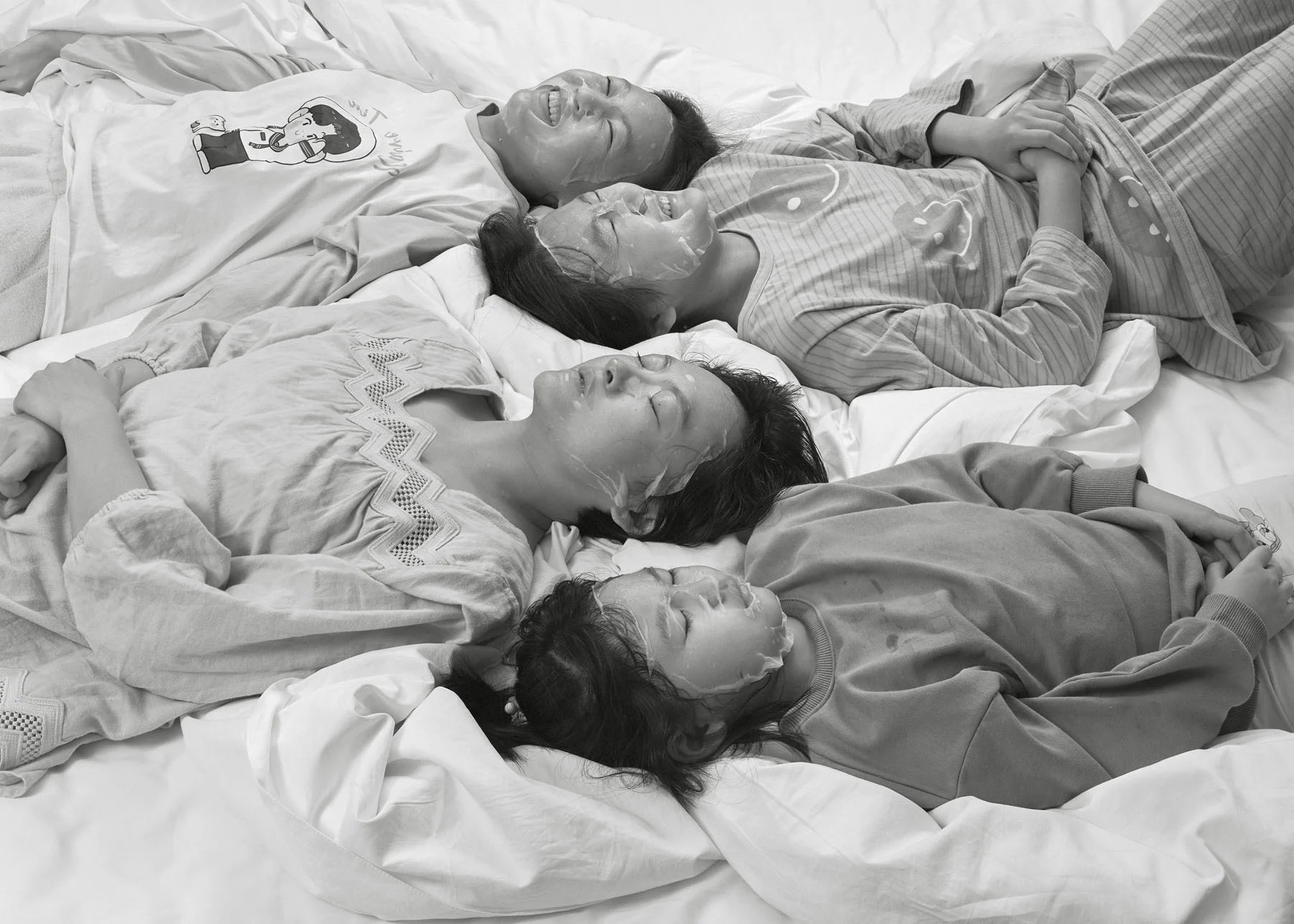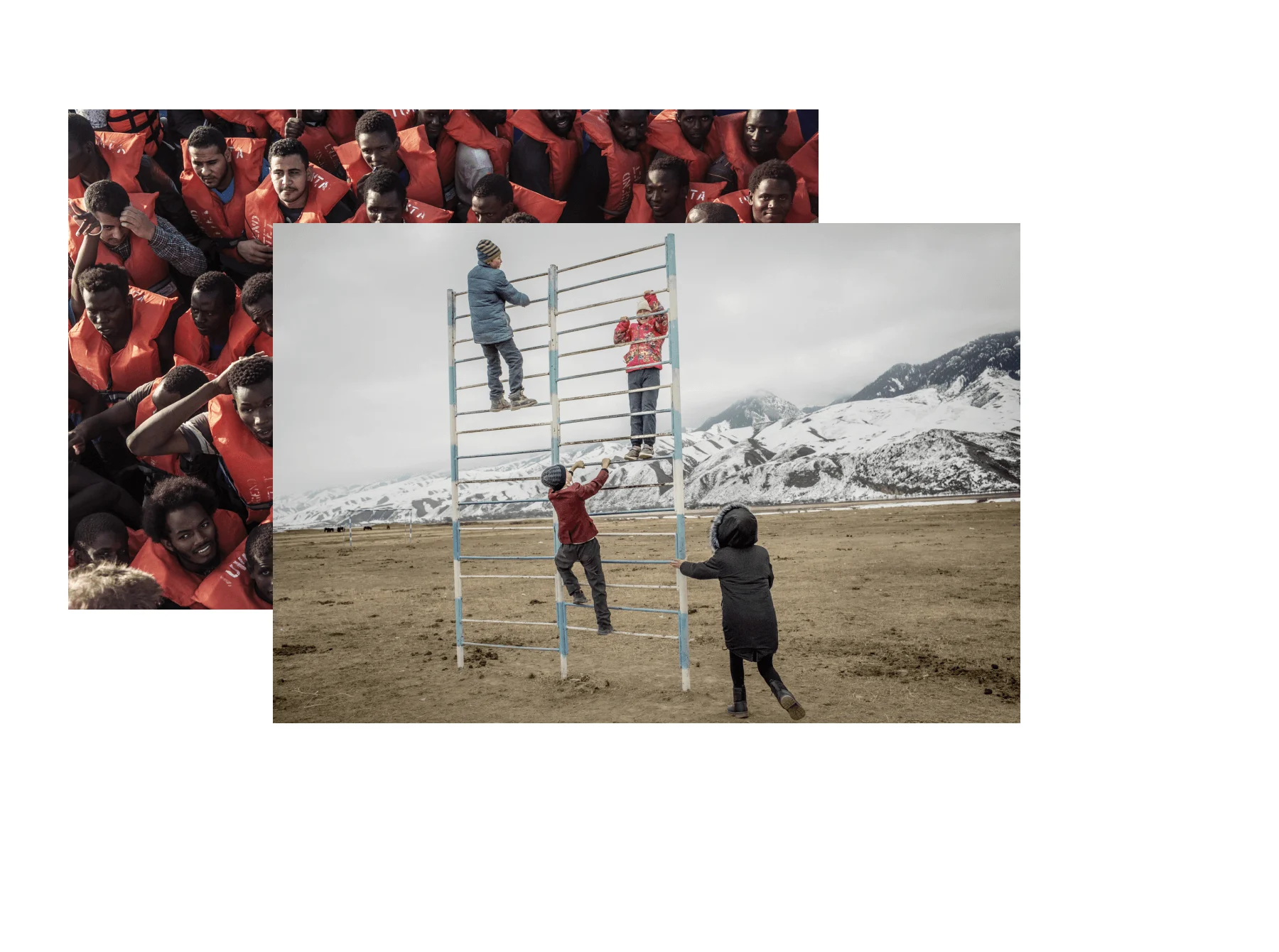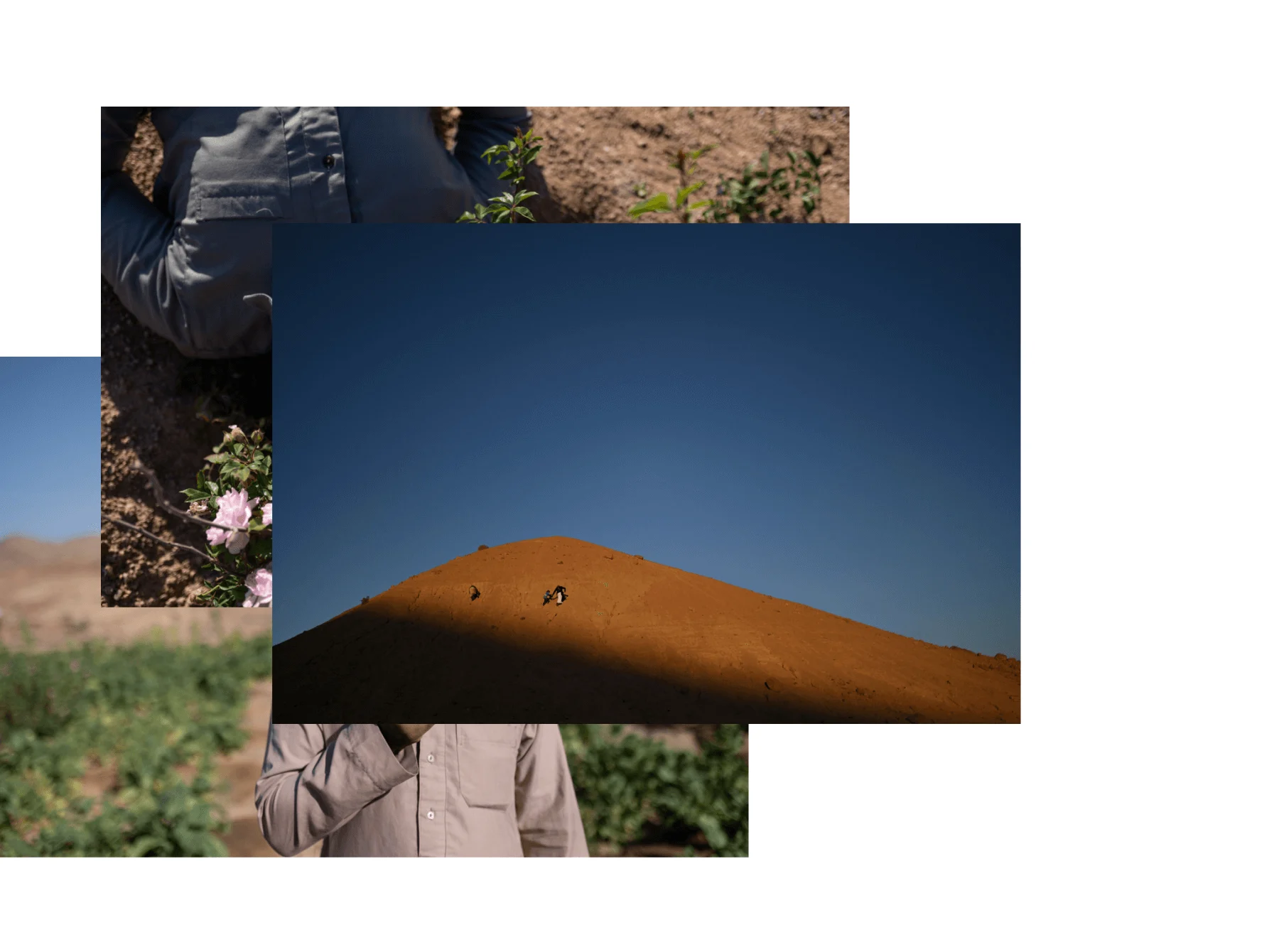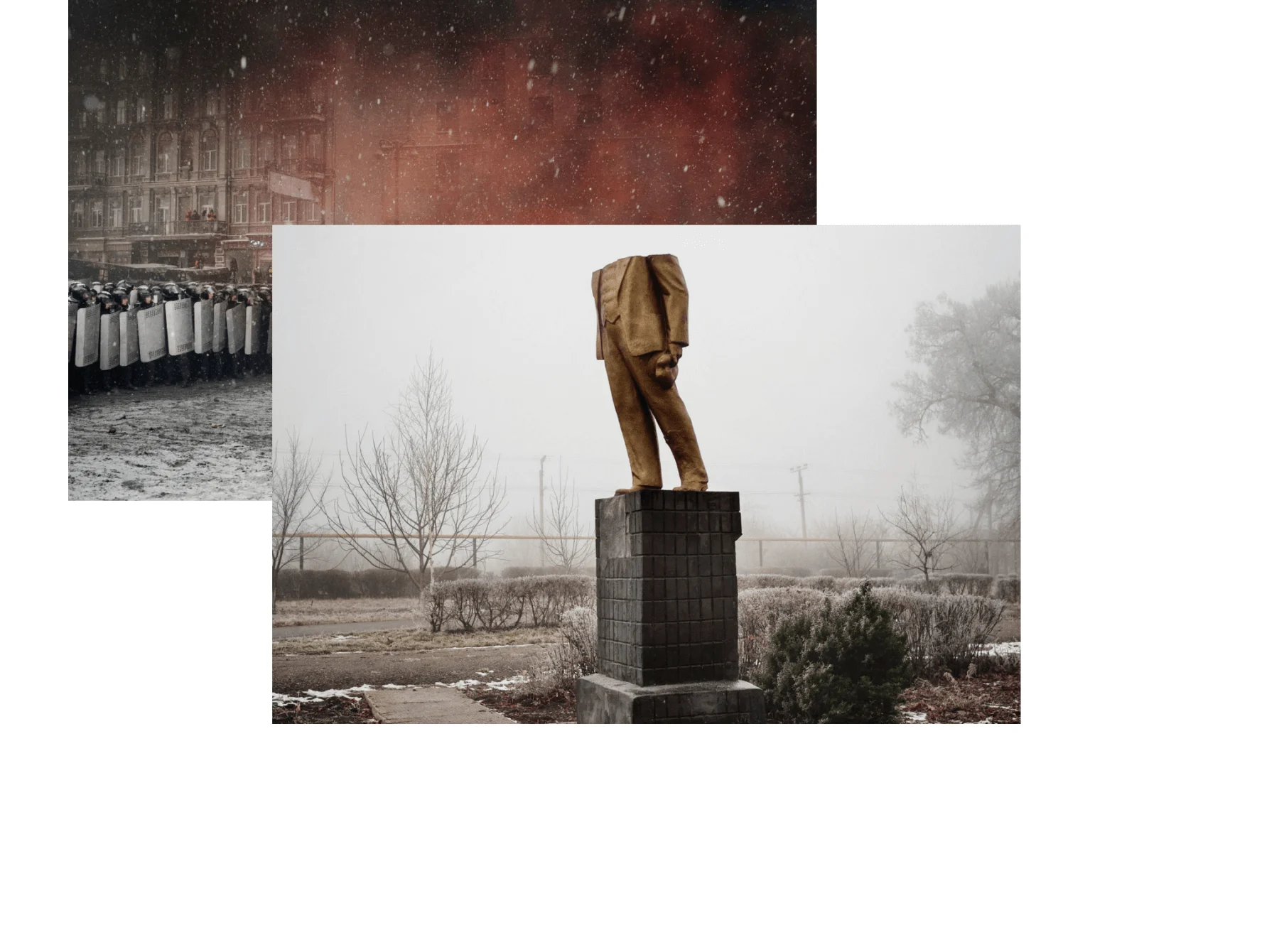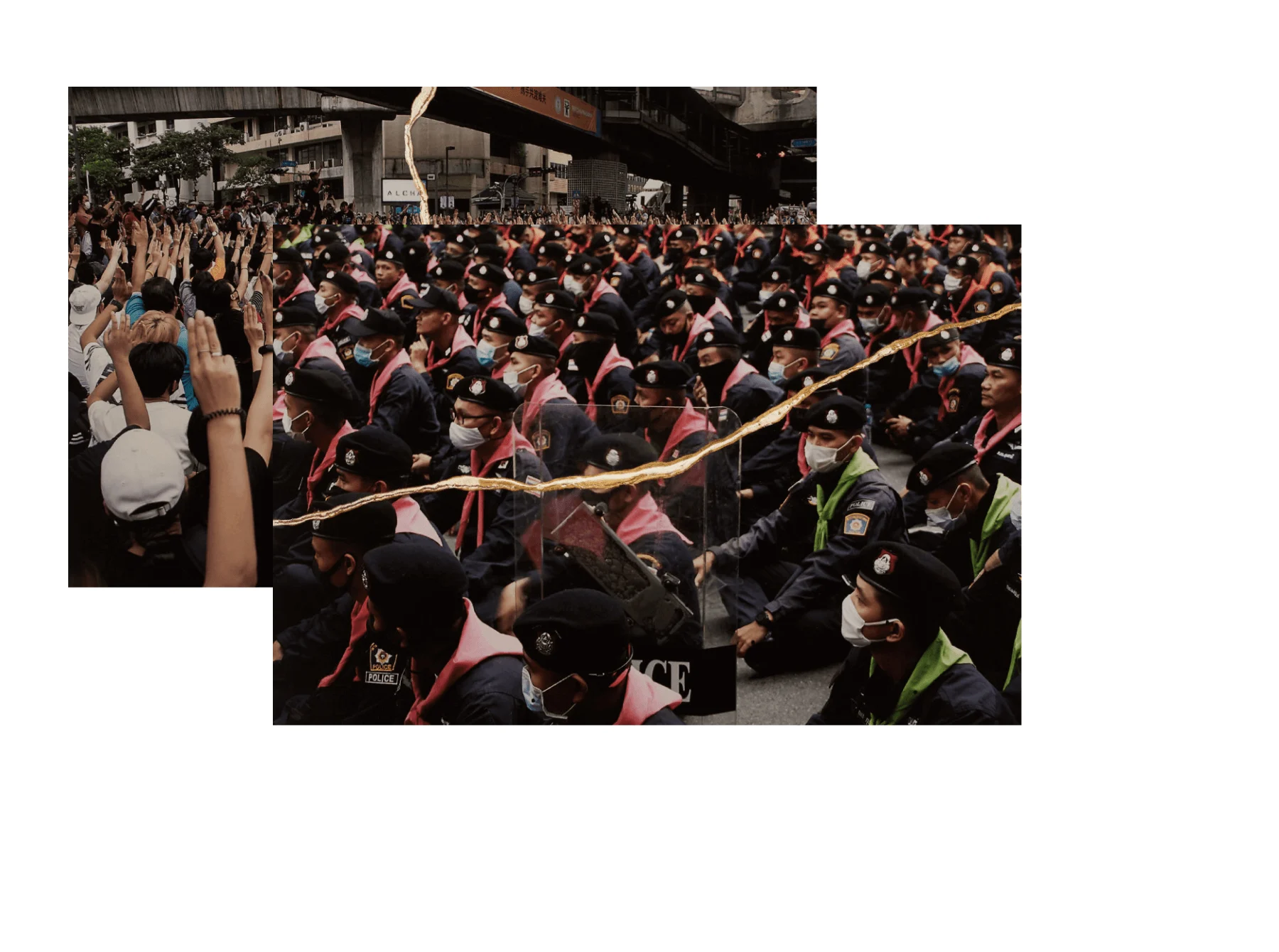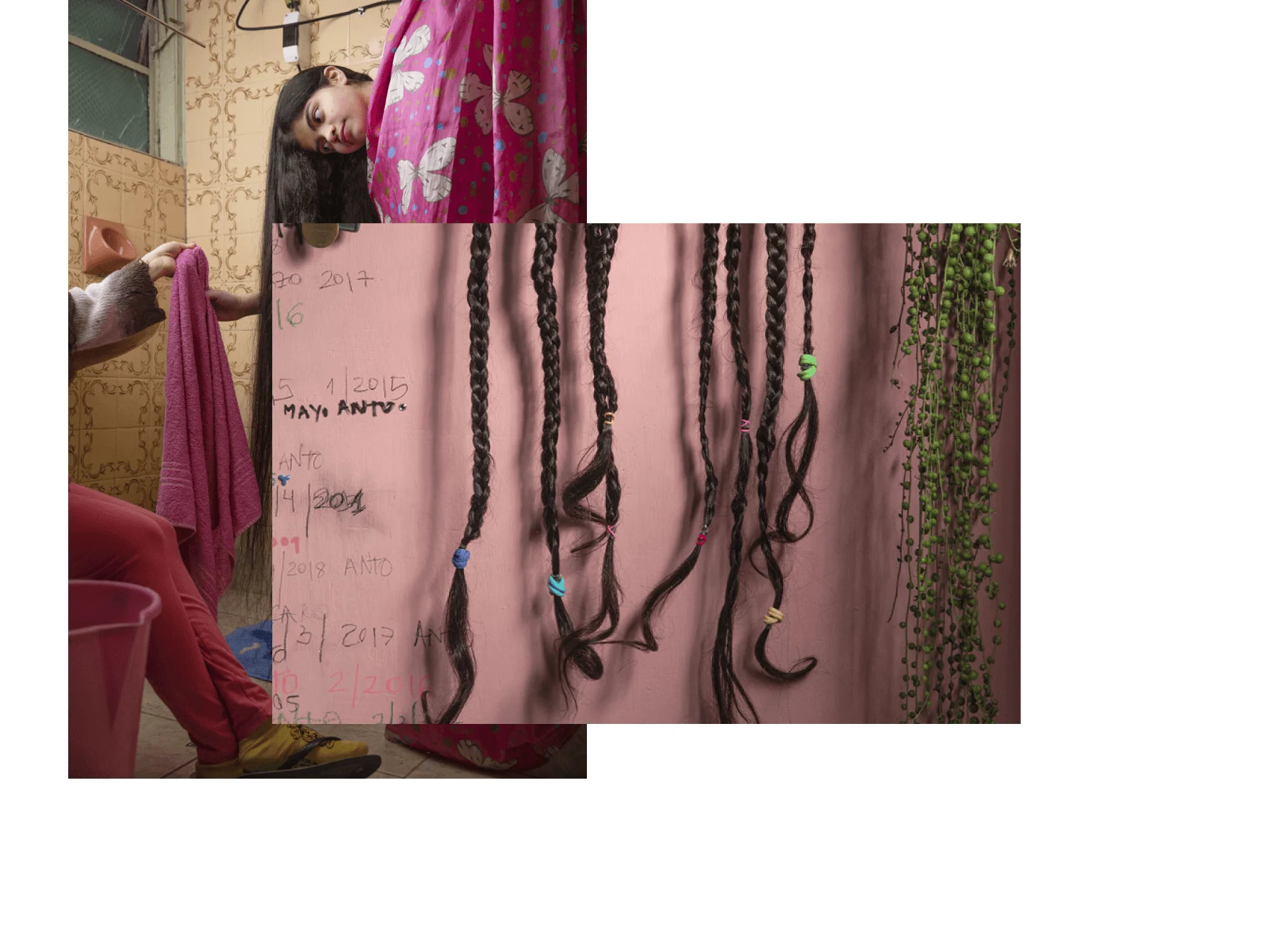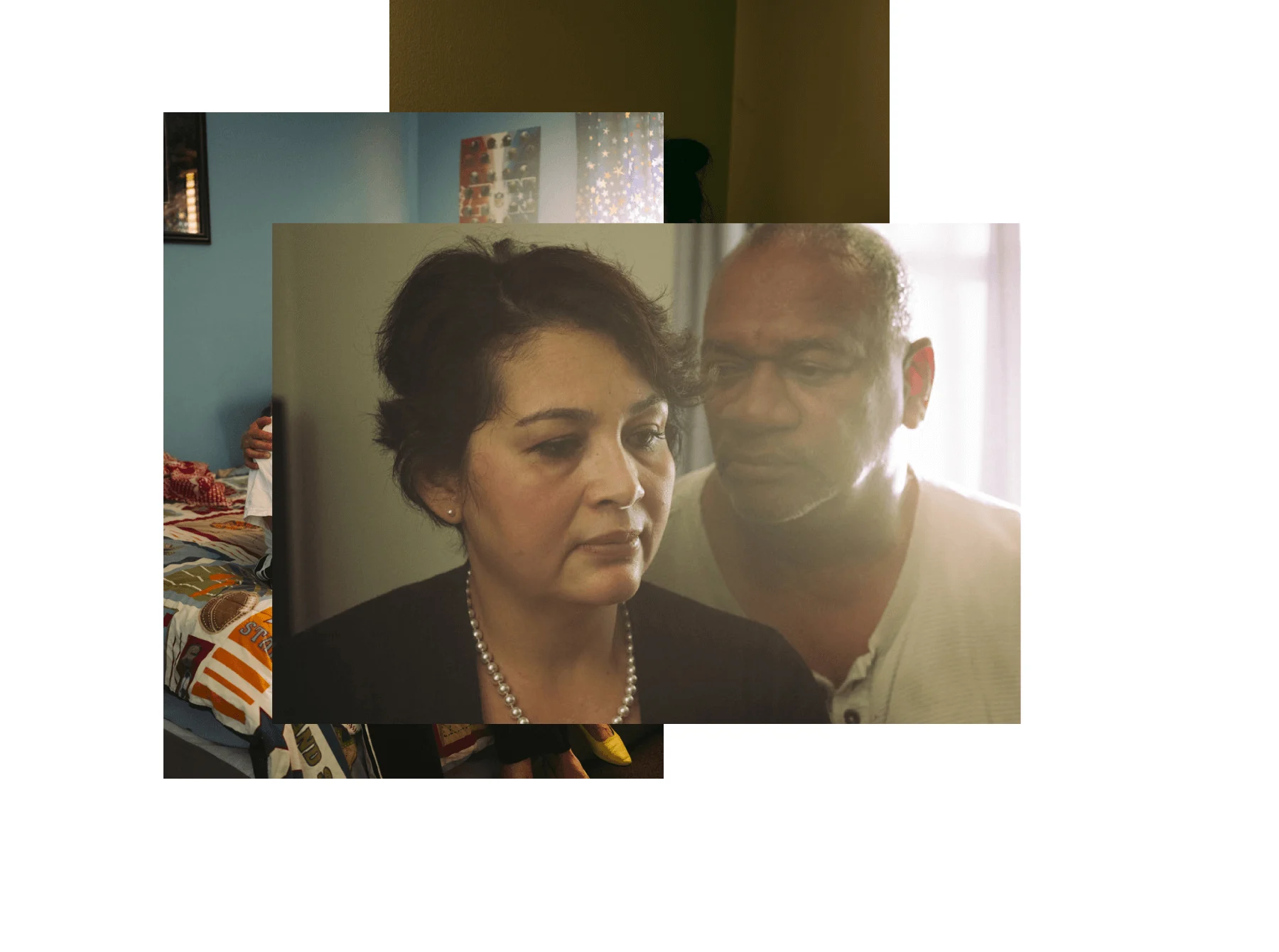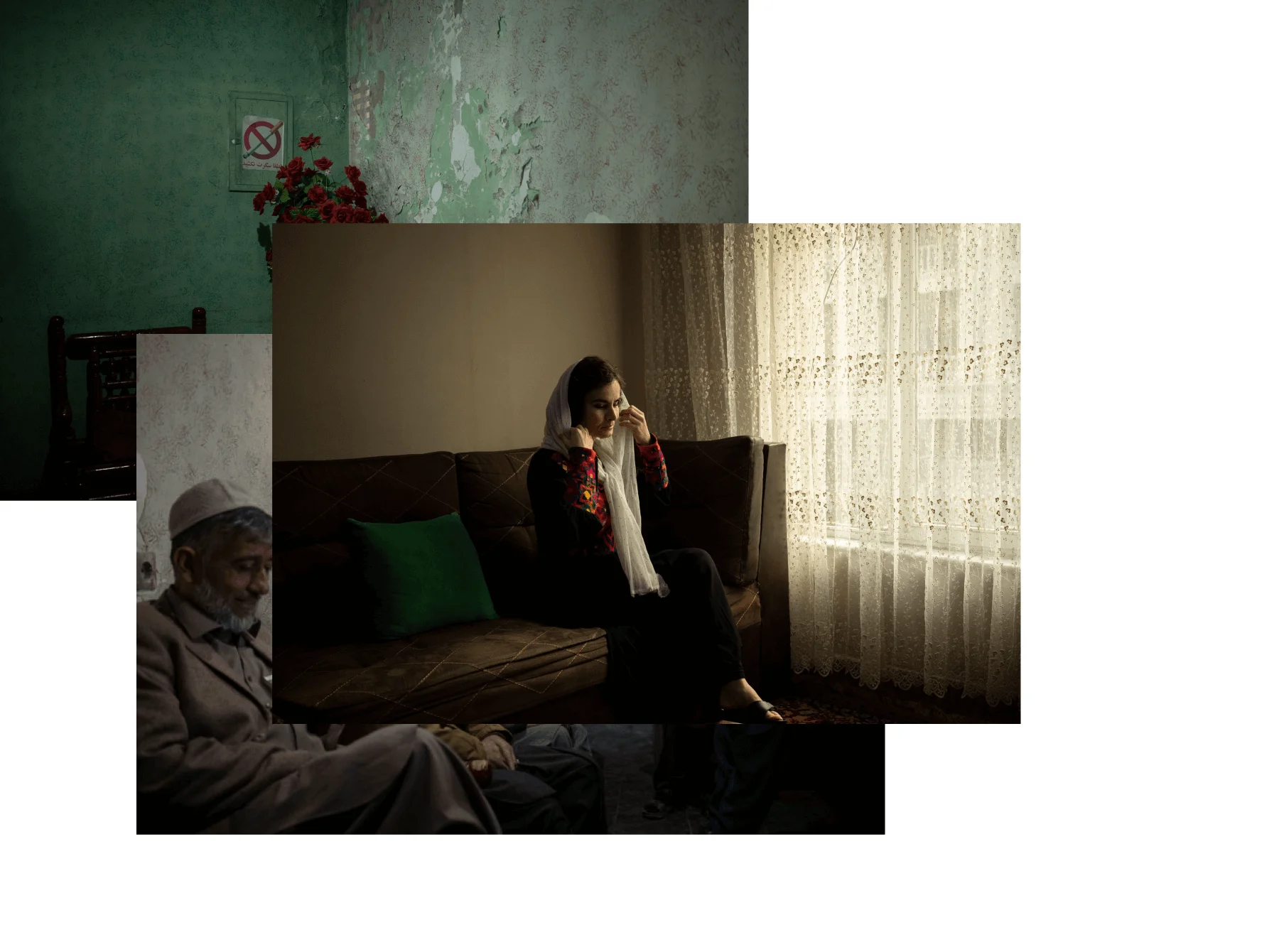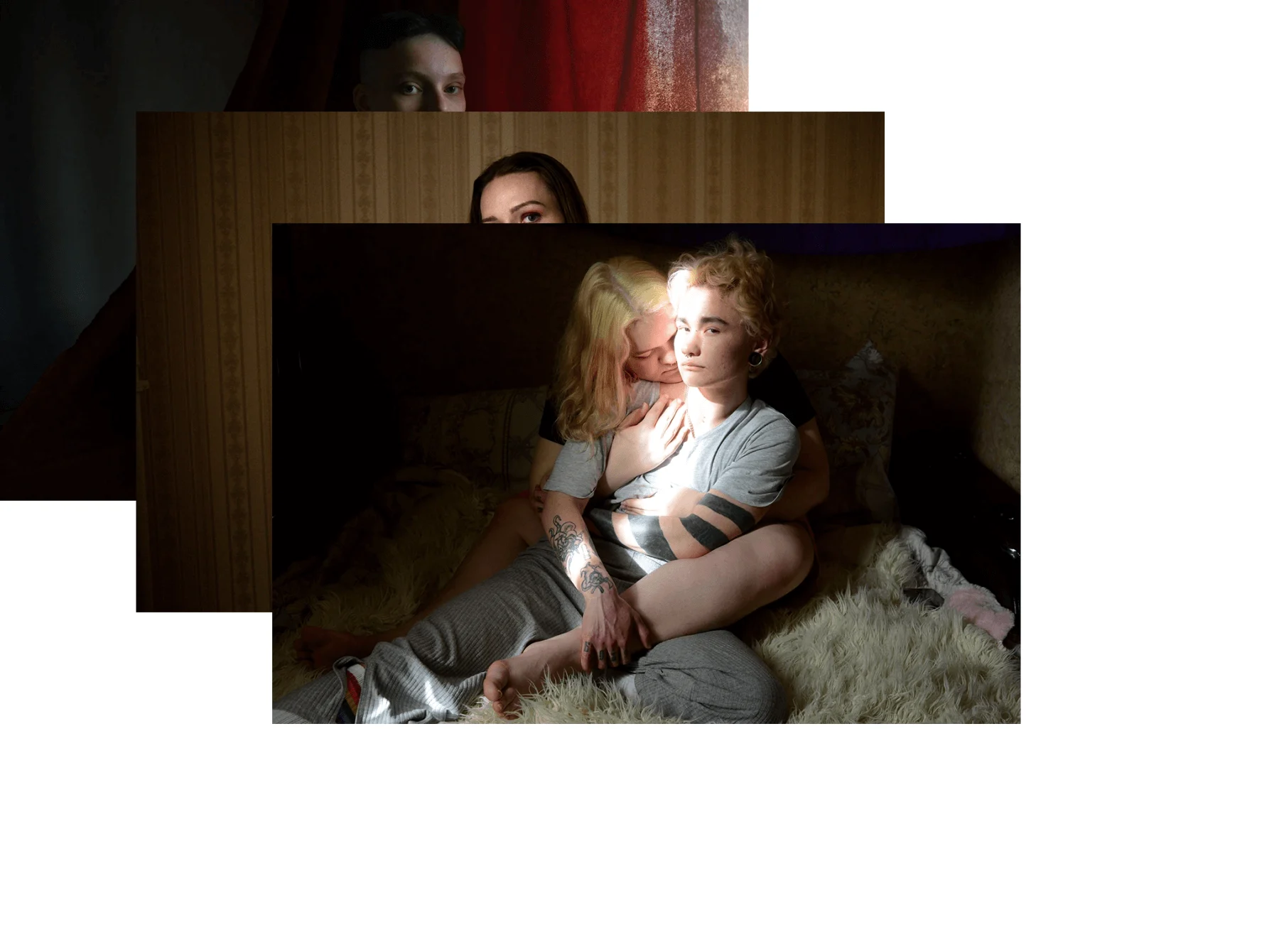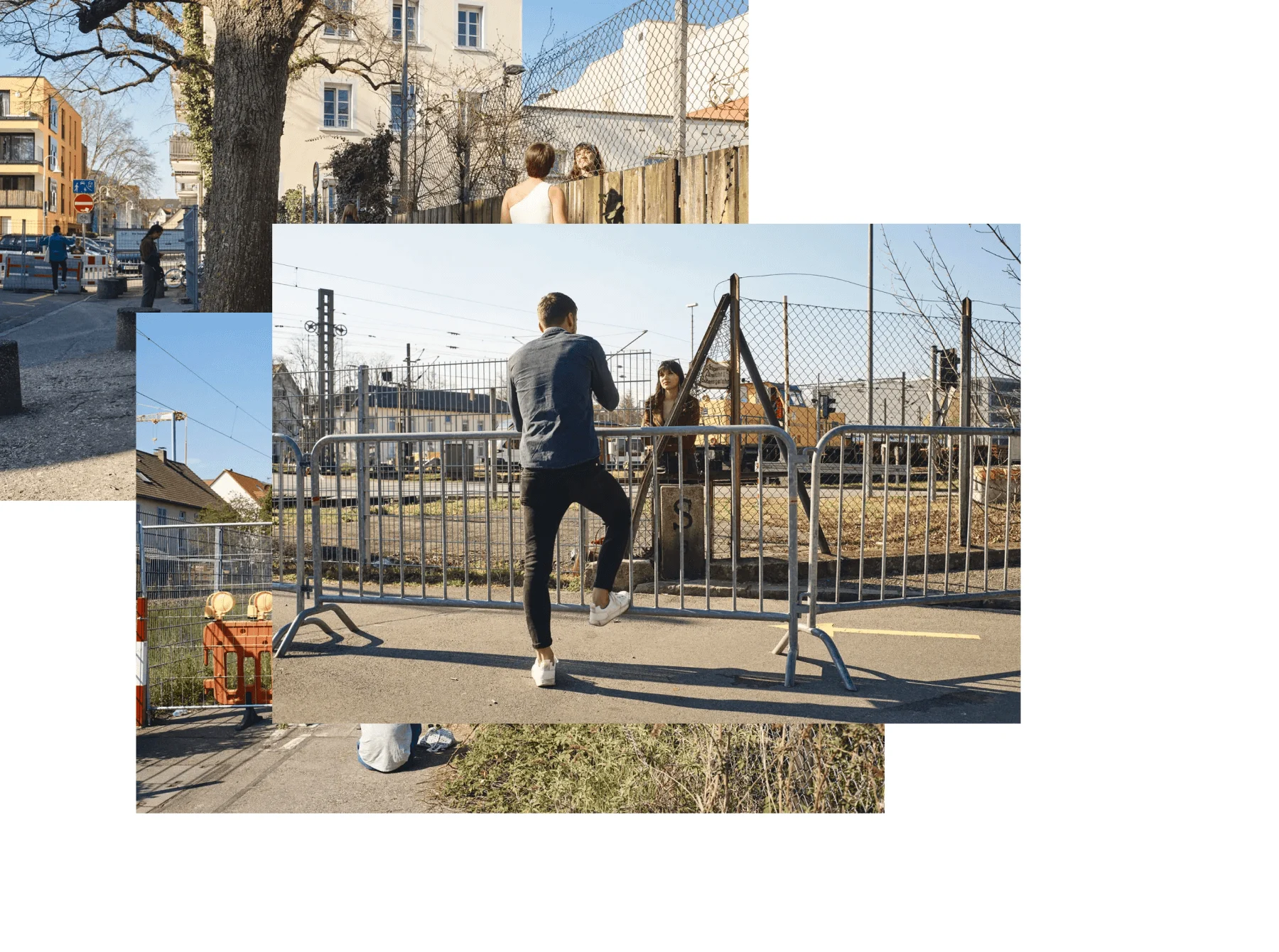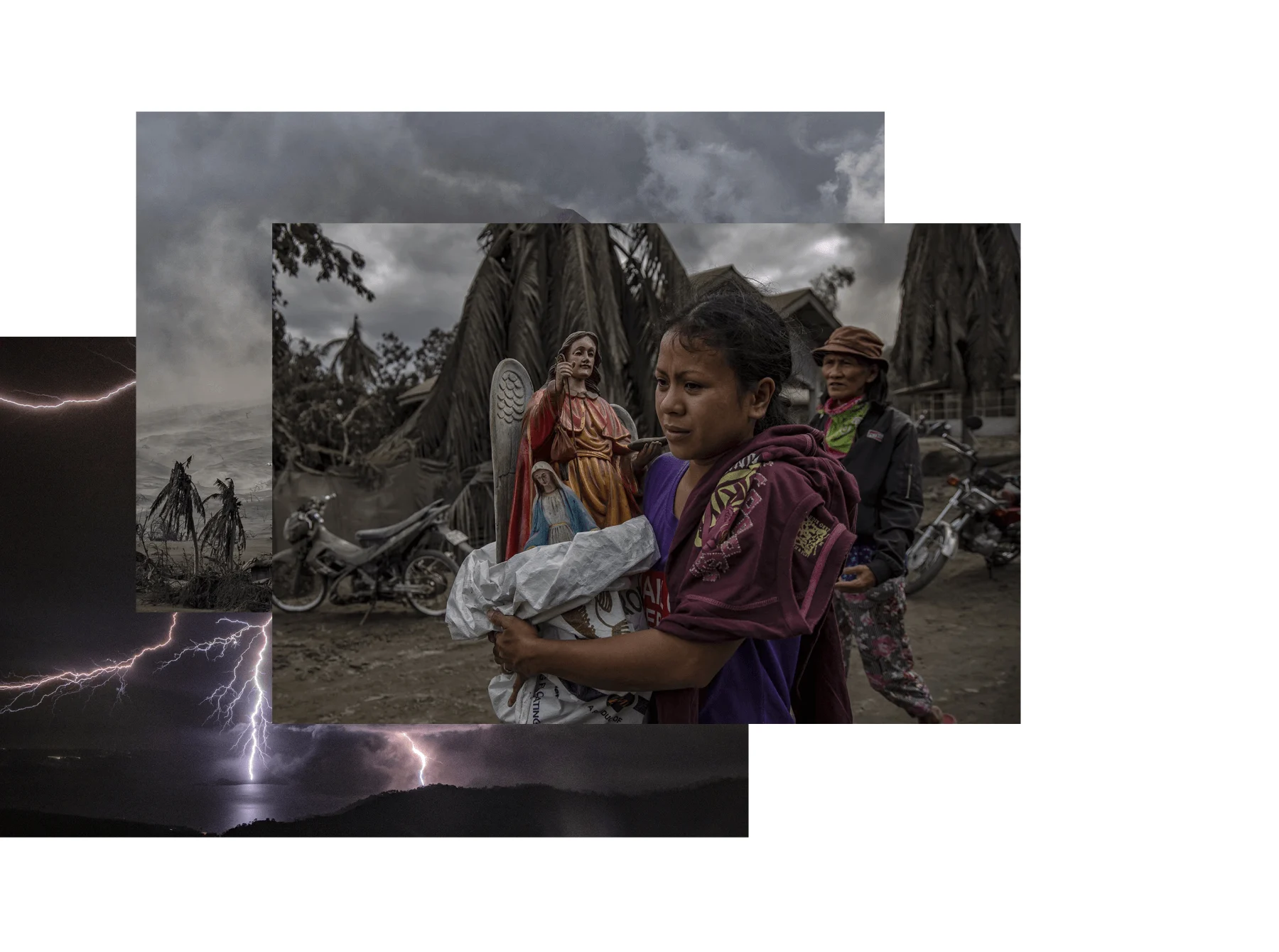
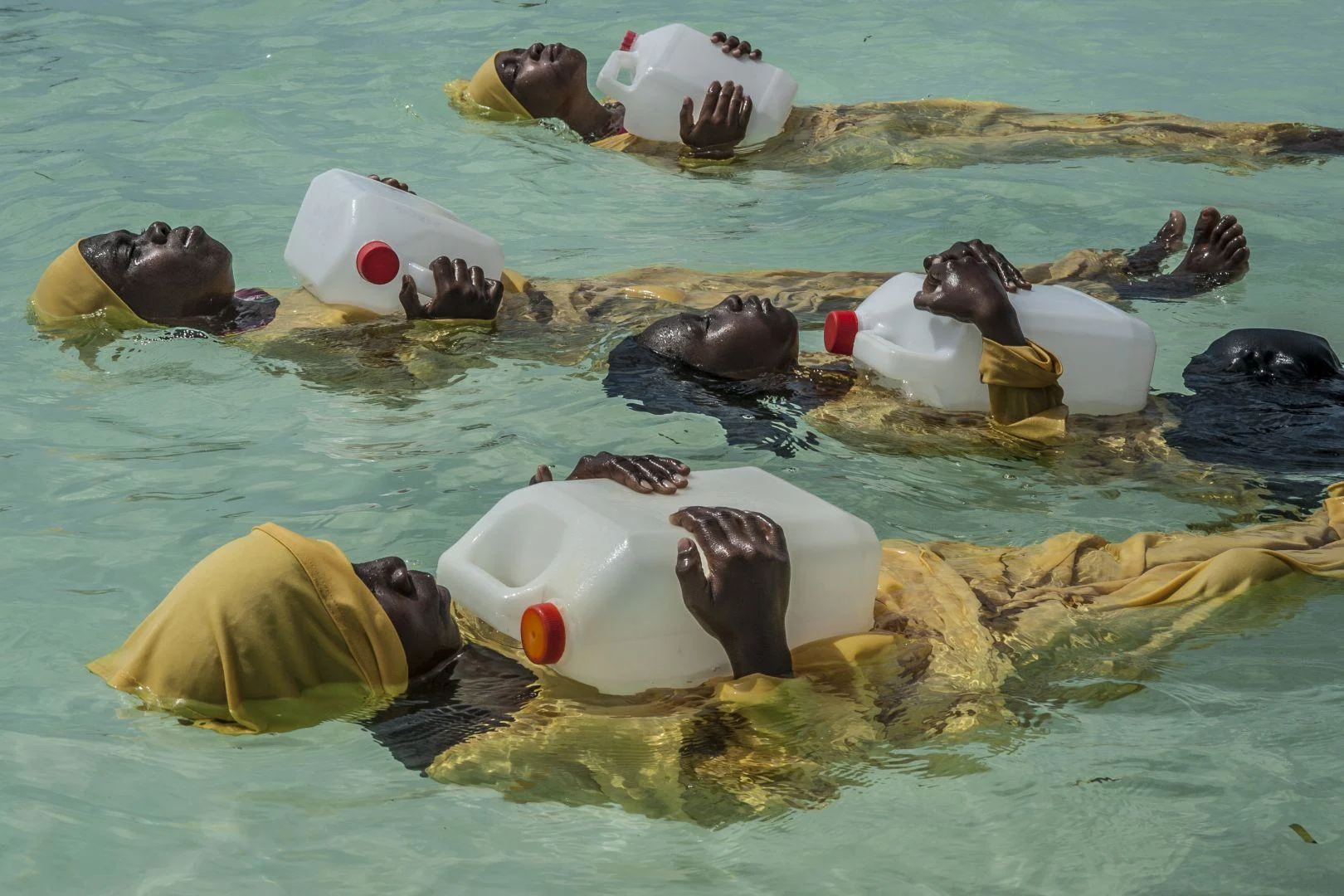
If you live surrounded by water, it makes sense you know how to swim. But for some women in the world, thanks to local customs and culture, this isn’t the case. Now though, an NGO is using female instructors to run swimming lessons for local women in the Zanzibar Archipelago, off the east coast of Africa.
American documentary photographer Anna Boyiazis captured this story for the first time on camera. The resulting series, Finding Freedom in the Water, is nominated in this year’s People category of the World Press Photo Award. Read on to learn more about Anna’s gorgeous series...
Since 2016, we’ve partnered with the World Press Photo awards to tell the stories behind the best photojournalism around, in the photographers' own words. See the whole series here.
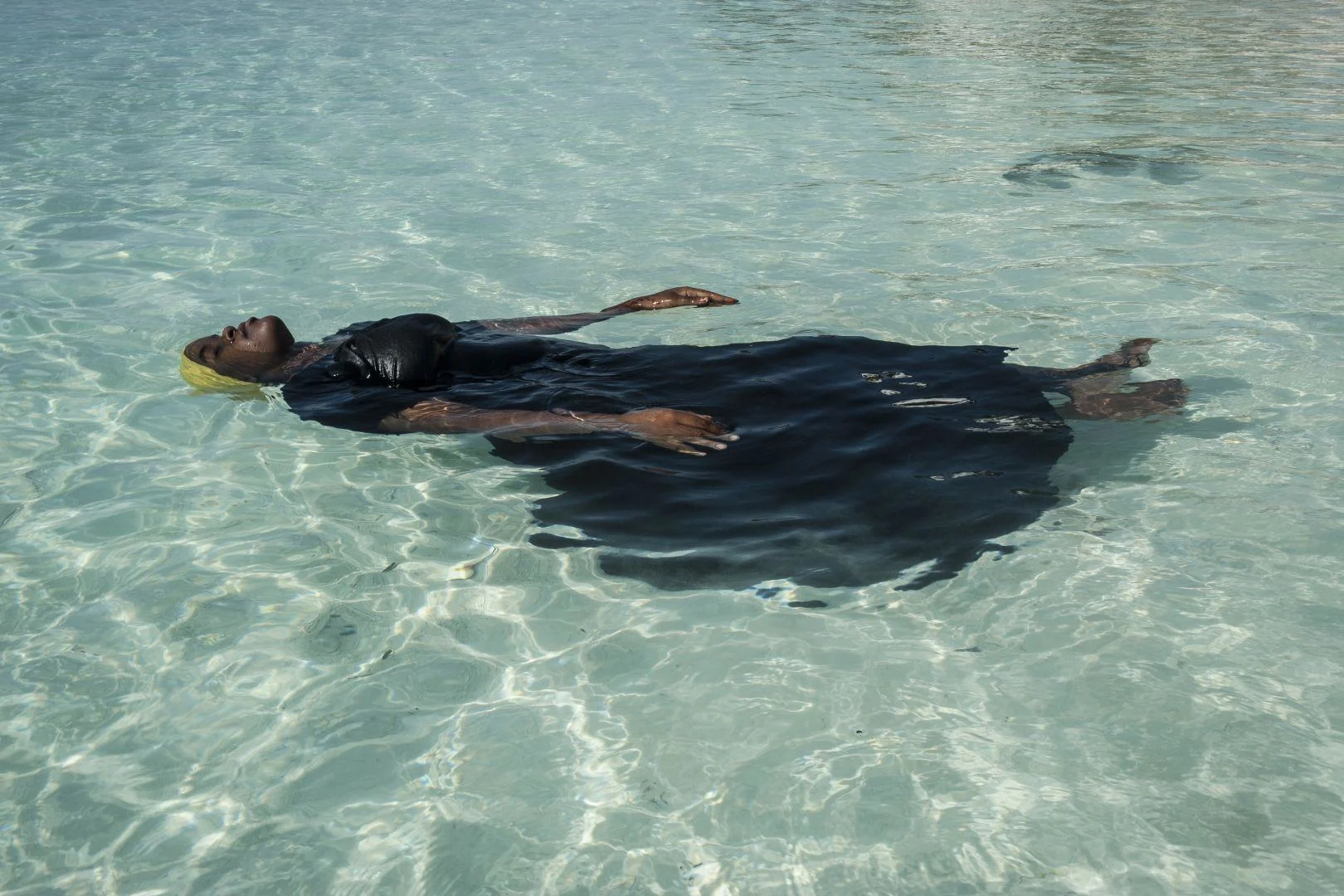
Daily life in the Zanzibar Archipelago centers around the sea, yet the majority of girls who inhabit the islands never acquire even the most fundamental swimming skills. Conservative Islamic culture and the absence of modest swimwear have compelled community leaders to discourage girls from swimming. Until now.
For the past few years, the Panje Project, a Zanzibari NGO, has made it possible for local women and girls to get into the water, not only teaching them swimming skills, but aquatic safety and drowning prevention techniques. The group has empowered its students to teach others, creating a sustainable cycle. Students are also provided full-length swimsuits, so that they can enter the water without compromising their cultural and religious beliefs.
This project is the perfect merging of my interests in human rights, public health, and women and girls’ issues.
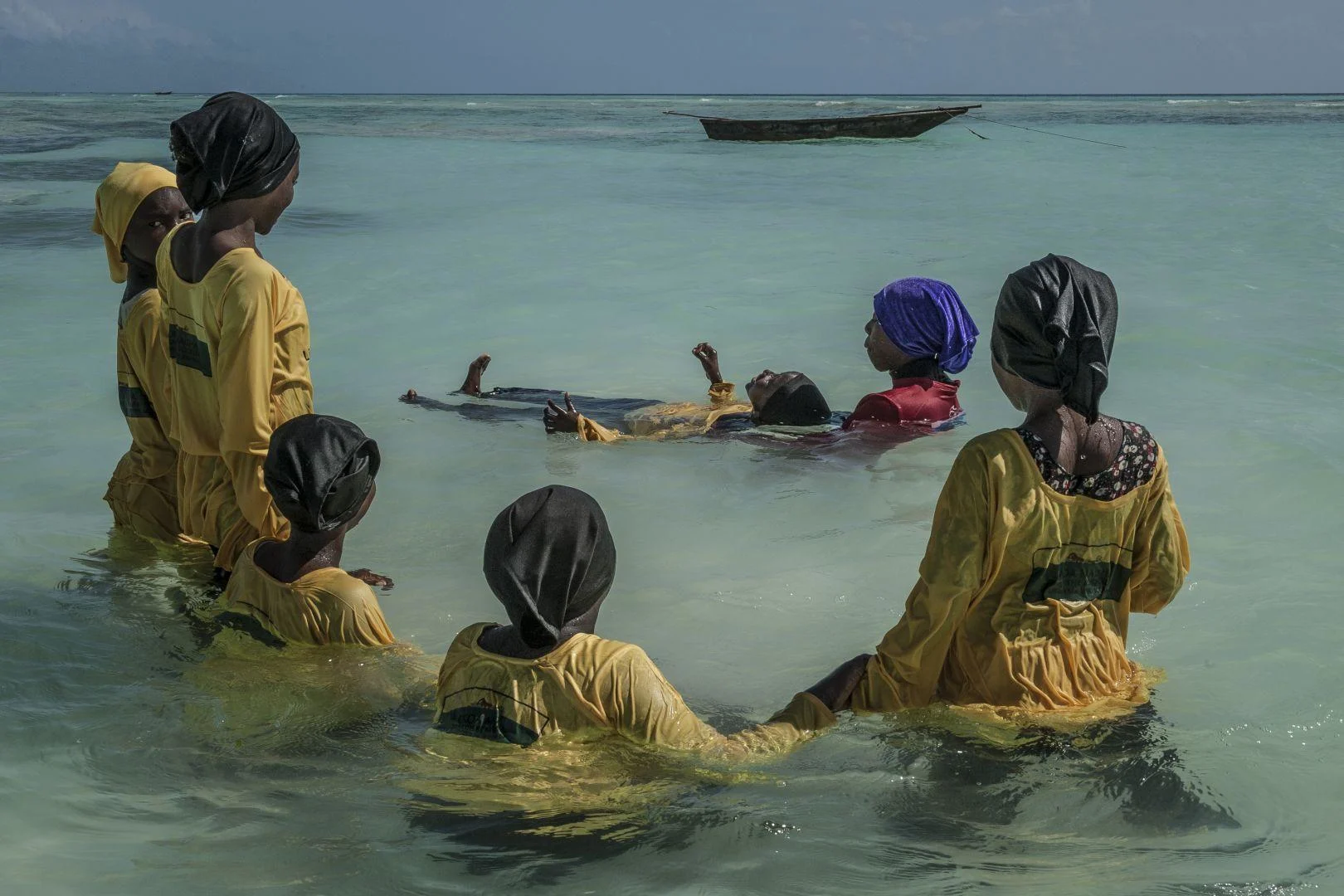
While the wearing of full-length swimsuits may be seen as subjugation, donning one in order to learn a vital life skill, which has long been and would otherwise be forbidden, is an important first step toward emancipation.
Education – whether it be in or out of the water – serves as a springboard providing women and girls the empowerment, and the tools, with which to claim their rights and challenge existing barriers.
The rate of drowning on the African continent is the highest in the world – 20 times that of the UK. Still, many community leaders have yet to warm up to the idea of women and girls learning to swim. The lessons challenge a patriarchal system that discourages women from pursuing things other than domestic tasks.
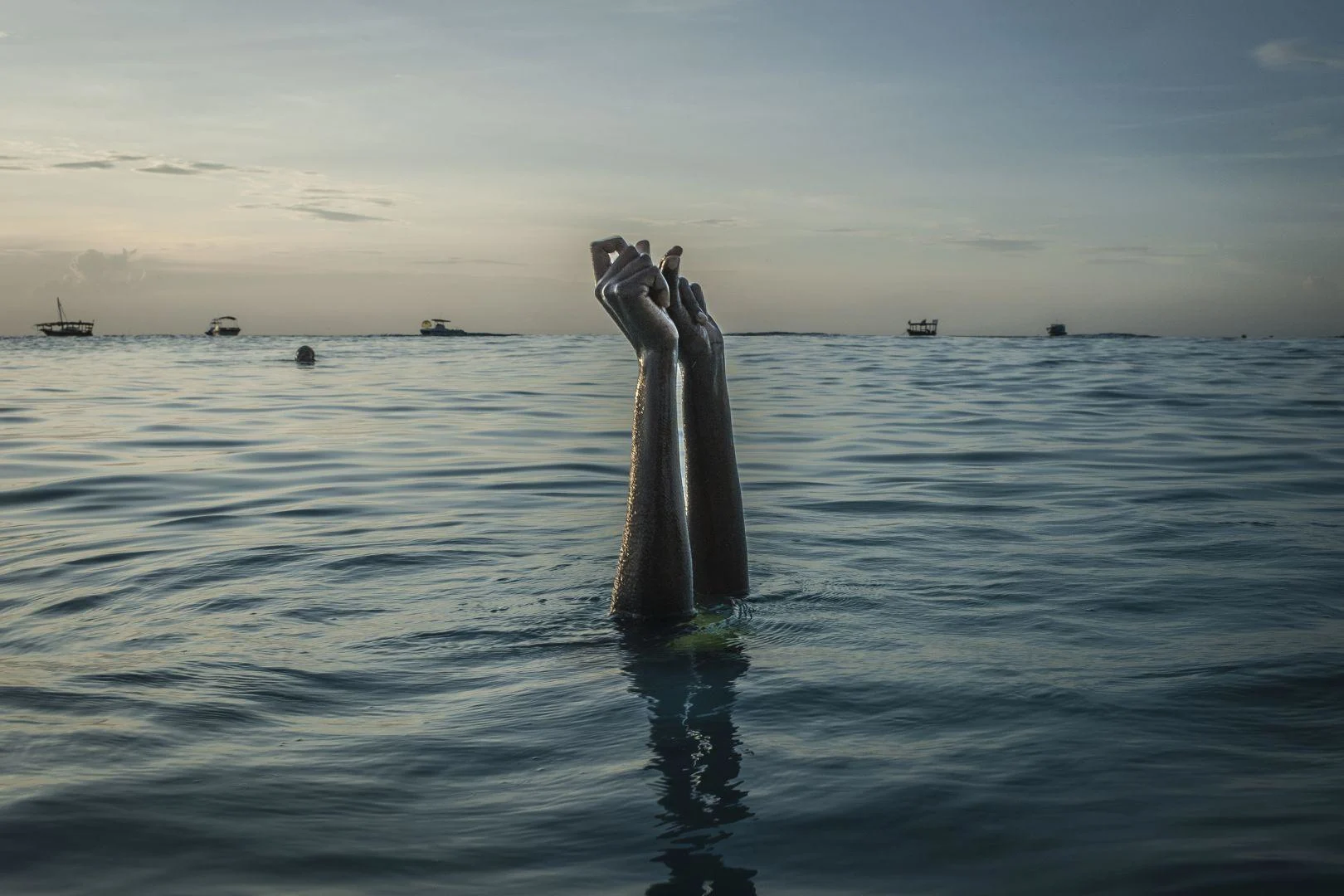
Gaining access to this story was the greatest challenge. Emailing the Panje Project from afar to explain the collaboration I envisioned garnered no response. Thankfully, at Visa pour l’Image in Perpignan, France, photographer Brent Stirton said, “21 days trapped...don’t let the waiting get to your head.”
With this encouragement to stay clearheaded when experiencing similar delays, I purchased a ticket from Perpignan to Zanzibar. In Zanzibar, I remained calm, focused and persistent.
After I introduced myself in person, the Panje Project began a month-long process of reaching out to the community — village elders, parents, leaders — to make sure that they were comfortable with the girls being photographed.
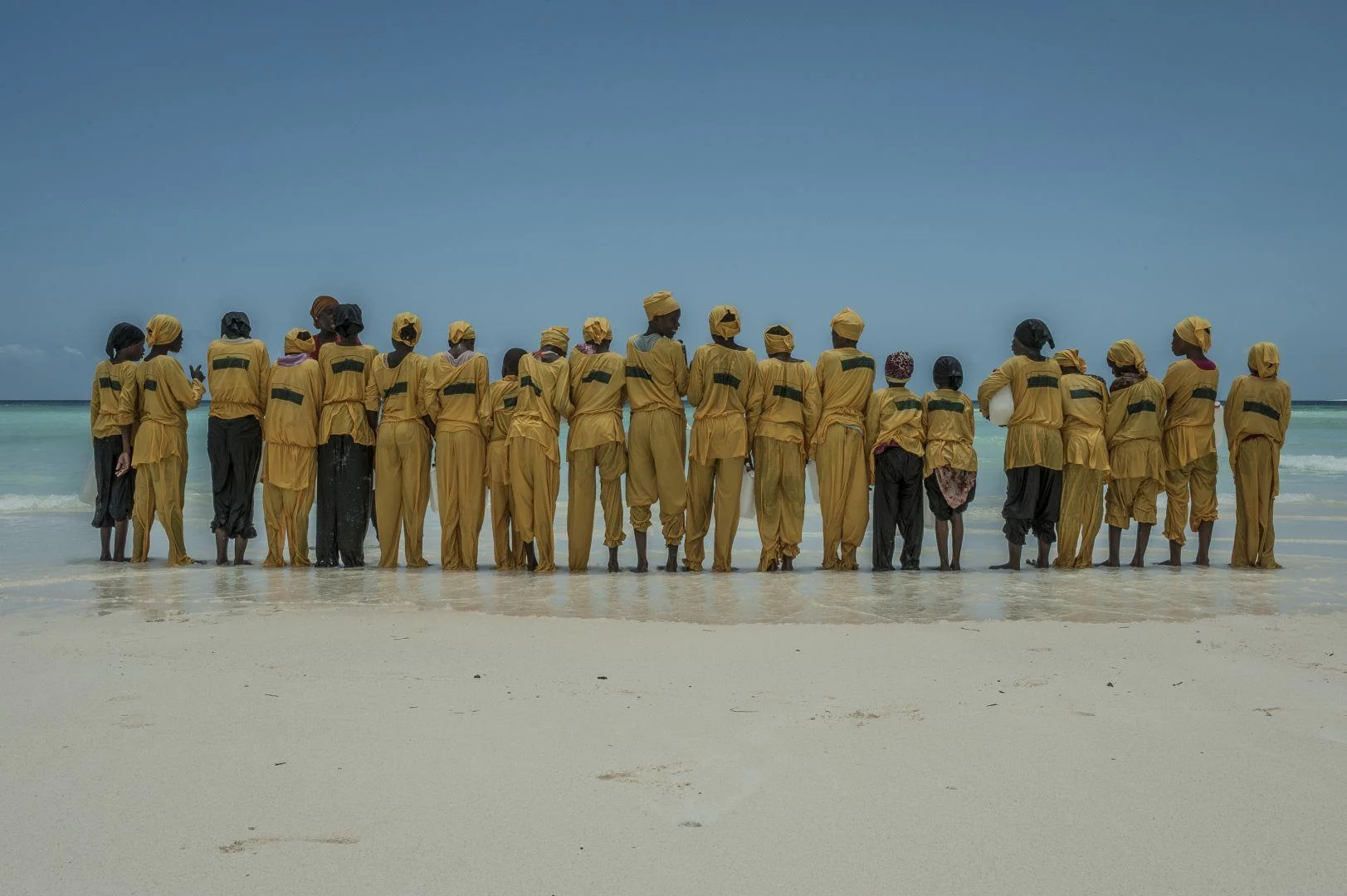
After access was secured, I spent two weeks teaching the swim instructors English, and an additional week in the water without my camera.
While visitors have been shunned from photographing participants in the water, this personal investment provided exclusive access to a highly preventable global public health challenge that has never been photographed.
It was phenomenal to watch the facial expressions and body language of the women and girls shift from fear and utter trepidation, to peaceful, then to what ultimately revealed itself as confidence and joy.


